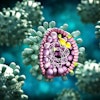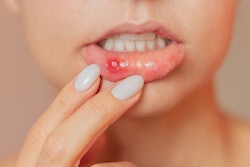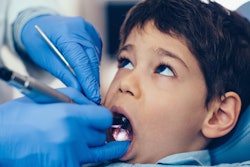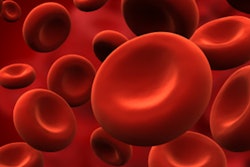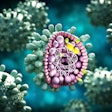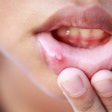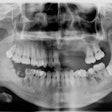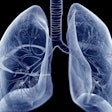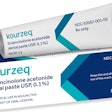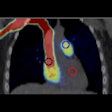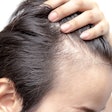
"All disease begins in the gut," said Hippocrates, Greek's "Father of Modern Medicine." Mouth ulcers are no exception. The mouth is not an island unto itself, so whatever happens to one cell in the body can affect every other cell in the body.
Your gut
 Alvin Danenberg, DDS.
Alvin Danenberg, DDS.Your gut has more beneficial bacteria than you have human cells in your body. The bacteria stimulate and enhance the immune system, prevent the overgrowth of harmful bacteria, manufacture various vitamins, and produce short-chain fatty acids from the fermentation of various amino acids and dietary fibers.
Short-chain fatty acids are sources of energy for the cells that make up the wall of the colon, assist in sugar metabolism, curb your hunger, and help with weight loss. These acids also improve the absorption of minerals, reduce systemic inflammation, and improve overall intestinal health.
In comes dysbiosis
Without the beneficial garden of bacteria that live in your gut, the short-chain fatty acids couldn't handle their jobs. With that in mind, what happens when bad bacteria take over the gut and create an imbalance? Then, you have gut dysbiosis, which means havoc in the gut, the blood system, the mouth, and other areas throughout the body.
Harmful cascading events occur when there is gut dysbiosis. The epithelial barrier, which is the outer wall of the gut, starts to break down. This barrier is made up of only one cell layer and held together by tight junctions that are like hinges, holding a door in place. Dysbiosis weakens the junctions, causing gaps between the cells. Stuff in the gut that should never leak into the blood system starts passing through these unhinged openings, contaminating the blood system. This is called a leaky gut.
At the same time, the unhealthy growing mass of gut bacteria stimulates the immune system, leading to an explosion of inflammation. If gut dysbiosis is not treated quickly, the inflammation continues and spreads throughout the body, affecting every cell and organ system in the body.
Chronic diseases, such as ulcerative colitis, type 2 diabetes, heart disease, and periodontal disease, and autoimmune diseases, such as rheumatoid arthritis and Hashimoto's hypothyroidism, originate from untreated, unhealthy guts.
Mouth ulcers and lesions
Have you had sores on your tongue, on the inside surface lining of your cheeks, on your gum tissues, or in the corners of your mouth? Many of these are painful, red, and painful. This is your body reacting to something going wrong in your immune system. Most of the time, gut dysbiosis is the source of these disturbances. Examples of these ulcers and lesions are aphthous ulcers, angular cheilitis, glossitis, lichen planus, etc. The good news is these ulcers and lesions may heal and disappear if the health of the gut is restored.
Treatment
The gut must be rebalanced to heal mouth ulcers and lesions. The factors that caused gut dysbiosis must be understood and corrected to do this. If the causes are not identified and removed, then the gut may never heal.
For example, if you had a splinter in your finger, the area could not heal until the splinter was removed. Likewise, if irritants are causing your gut to become unhealthy, there would be no way to return to a healthy gut until all the splinters were eliminated.
Many different irritants damage gut microbiome and the epithelial lining of the gut, including the following:
- Emotional, physical, or chemical stresses: These stresses include chemical stress and immune system stress from metal ions leaking from titanium implants placed in the body and chemicals leaking from breast implants, which can cause chronic systemic inflammation, damaging the gut microbiome. Failing dental work, toxic dental materials, and oral infections in the gum tissues, teeth, and jawbone could be significant factors.
- Lifestyle and environmental stresses: These stressors include overexercising, lack of exercise, sleep deprivation and sleep apnea, continuous exposure to dirty electromagnetic fields, excessive blue-light exposure, smoking, alcohol consumption, and lack of proper sunlight.
- Processed foods: Overly processed vegetable and seed oils, hydrogenated and partially hydrogenated fats and oils, packaged prepared foods, processed sugars and carbohydrates, or other junk and chemicals in foods will have a harmful effect on the gut.
- All plant foods: Plants have the potential to irritate the gut by way of their antinutrients. Substances such as phytates, oxalates, and lectins that exist in plants could damage the gut bacteria and intestinal barrier. Eliminating all plant foods for a period could assist the gut in healing itself. Then, plant foods could be reintroduced individually and slowly later.
- Specific medications: Prescription and over-the-counter medications, such as nonsteroidal anti-inflammatory drugs (NSAIDs), corticosteroids, alcohol, narcotics, antibiotics, chemotherapy drugs, hydrogen peroxide, and birth control pills, could result in leaky gut.
- Low-dose ionizing radiation: X-rays have a cumulative harmful effect. Excessive dental and medical x-rays over the course of time can cause damage to the gut bacteria and the epithelial lining.
If you have mouth ulcers or other health conditions, it's time to rebalance the bacteria in your gut.
Alvin Danenberg, DDS, has retired from the private practice of periodontics in Bluffton, SC. He continues to be on the faculty of the College of Integrative Medicine and created its integrative periodontal teaching module. He also spent two years as chief of periodontics at Charleston Air Force Base earlier in his career. His website is drdanenberg.com.
The comments and observations expressed herein do not necessarily reflect the opinions of DrBicuspid.com, nor should they be construed as an endorsement or admonishment of any particular idea, vendor, or organization.

